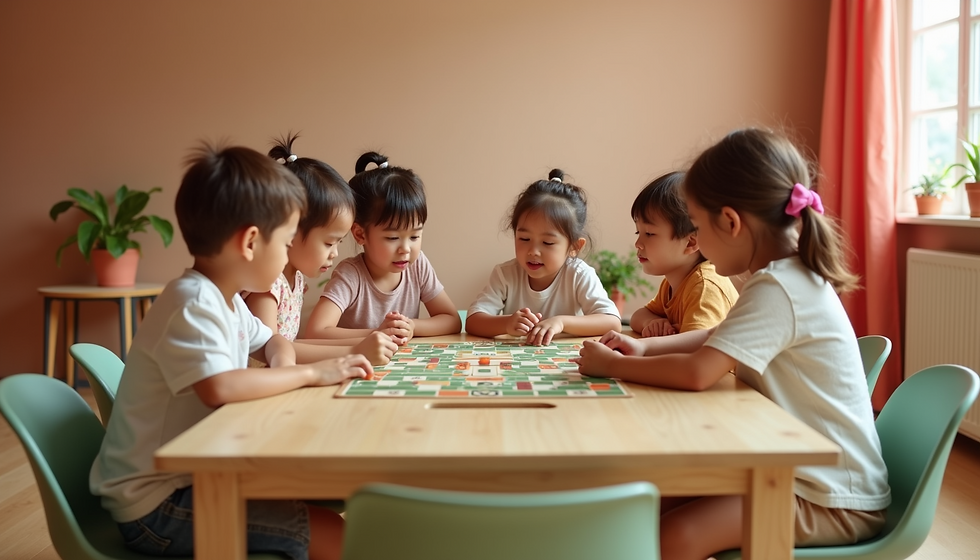Meaningful Peer Connections
- marshakleine
- Jun 29, 2025
- 2 min read
Updated: Jul 11, 2025
Meaningful peer connections for kids are crucial for social, emotional, and cognitive development. These connections provide opportunities to learn essential social skills like cooperation, empathy, and conflict resolution. They also contribute to a child's sense of belonging and can positively influence academic performance.

Facilitate Cultural Bridges through Discussions
Create Safe Spaces to Share
Cultivate Friendships
Acknowledge Positive Relationships
Encourage Peer Recognition
Build Trust with Open Communication
1. Interactive Games: Activities like 'Show and Tell' encourage children to share stories and learn about each other, helping to identify common interests. 'Two Truths and a Lie' game allow kids to share personal facts.
2. Collaborative Group Projects: Engaging in group projects, such as planning a party or creating art together, enhances teamwork and cooperation. These shared tasks help children learn to negotiate roles and share responsibilities, reinforcing their social bonds.
3. Empathy-Focused Activities: Games like 'Guess the Feeling' are effective in helping children express emotions and recognize others' feelings. This promotes emotional literacy and nurtures bonds among peers.
4. Classroom Decorations: Involving students encourages a sense of belonging and collective effort, fostering community spirit.
5. Teach Social Skills: Explicitly teaching social skills such as sharing and taking turns can guide children on how to engage positively with peers. Role-playing scenarios can be a fun and effective way to practice.
6. Promote Collaborative Learning: Structuring collaborative learning environments help children from different backgrounds work together. Group projects or games encourage interaction and reinforce friendship skills while allowing children to observe and emulate positive behaviors.
7. Facilitate Discussions: Regular discussions on feelings and how to build friendships empower children to express their thoughts openly. The classroom can become a safe space for children to talk about their experiences and learn from one another.
8. Involve Parents: Engaging parents in the process helps extend social learning beyond the classroom. Sharing information about emerging friendships allows parents to facilitate social interactions during playdates or community events.
9. Use Technology to Connect: For children facing social challenges, utilizing technology, such as video calls, can bridge gaps and promote connections with peers, enhancing their ability to form friendships.


Comments